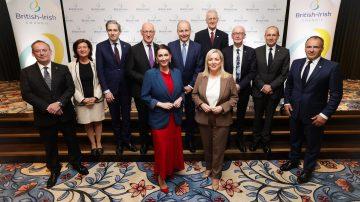The provisional assessment of Guernsey’s States’ financial position in 2021 is indicating a better outturn than forecast despite the ongoing impacts of the Covid-19 pandemic, including a second lockdown.
It shows an improvement against budget of £46m, generated by a combination of higher revenue income and lower Committee expenditure. This has seen a budgeted deficit of £33m become a surplus of £13m. This has been further improved by the income earned on our reserves in what was a good year for investments.
This surplus figure is before we take into account the amount the States, under its own rules for investing in infrastructure, is committed to spending on capital projects. That is in the region of £60m, meaning the overall position is still in deficit.
Revenue Income saw an additional £52m generated against budget, with Income Tax the largest driver with a gain of £28m. ETI, which accounts for 65% of the total, was £12.5m ahead showing growth of 7% on 2020 and critically 6% up on the pre-Covid period of 2019.
This shows the strength and resilience of the Guernsey economy which has bounced back faster than could have been expected. A stand-out performance was delivered on Document Duty, driven by the extraordinary housing market, with £32m generated against a budget of £20m, which is £10m up against the good performance in 2020. Customs Duties also contributed to the strong performance, outperforming the budget by £6m.
Despite volatility in global markets, a strong investment return of 9.7% was achieved, well ahead of the budgeted return of 3.8%. This translates into additional income overall which helps offset the deficit position.
Although allowance had been made in the 2021 budget for Covid related costs, the second lockdown resulted in significantly more cost for the States through the business support schemes. The full year cost paid to businesses was £22m against a budget of £5m. However this support will have been a factor in the economy’s overall strong performance, with continued low levels of unemployment and low number of business failures.
However the pandemic has also meant delays in the delivery of transformation initiatives also fed through into a lower level of savings delivered in 2021, with just over £1m generated against a target of £7m. These programmes and the resulting savings are now expected to be delivered in 2022 & 2023.
However, aggregate Committee expenditure was £11m below budget. This is despite Committees having to pick up additional spend on the various measures to respond to Covid challenges.
Considerable sums were originally set aside to fund agreed Service Developments (£10m) and for contingencies within the Budget Reserve (£30m). Covid costs, staff pay rises and the capacity to implement service developments have all been much lower than expected which translated into a total of £18m being unspent at the end of the year.
Other adverse factors that have been absorbed as a result of the difficult environment include an unbudgeted provision of £9m for writing off the Guernsey Ports overdraft and the final Aurigny loss with the early estimate of some £16m, which is £2m adverse to budget.
The 2021 outturn is significantly better than the estimate included in the Funding & Investment Plan. However, it is not expected that the full value of the improvement will persist and become part of the baseline.
Deputy Mark Helyar, Treasury Lead for the Policy & Resources Committee said: “In terms of the Bailiwick’s continued response to Covid and what that’s meant for our economic performance, for jobs and businesses and for public finances, 2021 has been much better than expected and that’s a credit to this community. But we should not expect this very exceptional time to continue and become the norm and we need to be really careful not to be lulled into a false sense of security.
“It’s really positive to have had this good performance, and it puts us in a good position for moving forward, but overall when you include the Bailiwick’s capital spending needs, we remain in a deficit.”
Deputy Peter Ferbrache, President of the Policy & Resources Committee said: “The changes in our population which present such significant problems for us when it comes to securing essential services long-term are exactly the same today as they were yesterday.
“Financially, we have recovered from the impacts of the pandemic much faster than expected, but we cannot realistically expect that rapid pace to continue indefinitely. That said, further growth in our economy long-term is absolutely something we need to see and we’re relying on it to avoid our annual shortfall being even worse than the £85m currently forecast.
“So yes, we’ve seen a good financial performance, but no, our problems do not suddenly go away. We must not lose sight of that longer-term challenge and the need to find sustainable solutions for the sake of future generations of Islanders.”















